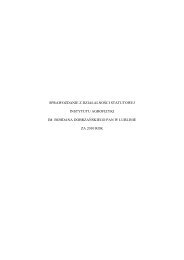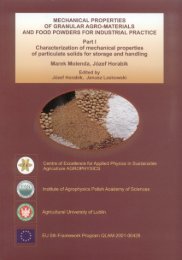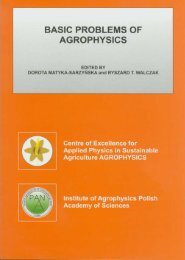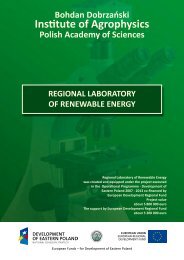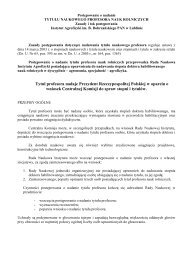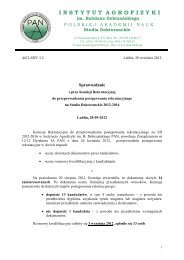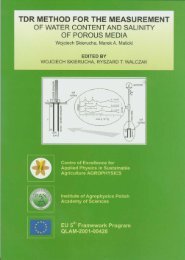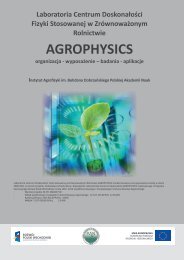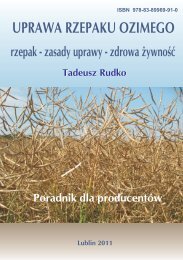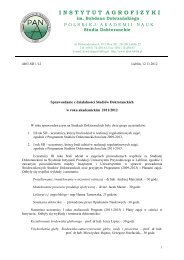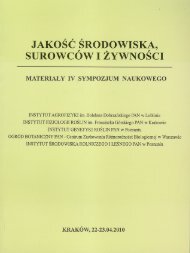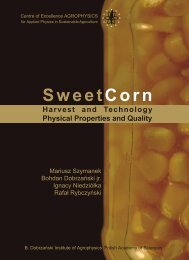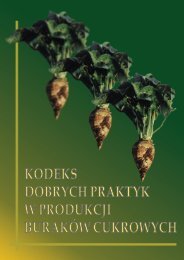C - Lublin
C - Lublin
C - Lublin
Create successful ePaper yourself
Turn your PDF publications into a flip-book with our unique Google optimized e-Paper software.
METHOD AND MATERIALS<br />
The shear strength parameters of food powders were determined according to<br />
the Eurocode 1 [3] recommendations using the Jenike [5] shear tester. The effective<br />
angle of internal friction δ, the angle of internal friction ϕ, the cohesion c and<br />
the flow index i were determined from experiments performed in the tester of<br />
60 mm in diameter. A displacement velocity was equal to 0.03 mm⋅s -1 . The sample<br />
was consolidated under the reference normal stress σ n of 30, 60, 80 and 100 kPa. In<br />
the case of powders which reveal the tangent stress oscillation the reference normal<br />
stress was enlarged to about 200 kPa to verify the influence of the consolidation<br />
pressure. The standardized twisting of the top plate of the shear box were applied<br />
to consolidate the sample. Two shear tests were carried out for each variant of experiments.<br />
One sample was sheared when loaded to the reference stress. The other<br />
was sheared at half of the reference stress after pre-loading to the reference stress<br />
(Fig. 1). Tests were performed in the controlled temperature (20 o C) and air relative<br />
humidity (65%) laboratory. Tests were performed for 12 grocery food powders:<br />
products of cereal grain, milk, sugar and kitchen salt.<br />
N=σ πD 2<br />
n<br />
4<br />
τ<br />
τ 0<br />
0<br />
τ<br />
τ 0<br />
0<br />
T<br />
τ 1<br />
1<br />
τ 1<br />
1<br />
ϕ<br />
∆L<br />
c<br />
δ<br />
1/2σ n<br />
σ n<br />
σ<br />
RESULTS<br />
Fig. 1. Jenike shear tester and procedure of the strength testing [3].<br />
The effective angle of internal friction δ of all tested materials was found to be<br />
in the range of 30-35 deg. mainly (Table 1). There was no clear influence of the<br />
consolidation pressure. The largest value of the effective angle of internal friction<br />
(approx. 40 deg.) was obtained for potato starch and agglomerated milk for the<br />
lowest value of the consolidation pressure. The smallest was for coarse wheat flour<br />
(27 deg.) for the highest value of the consolidation pressure. About twice higher<br />
standard deviation of the effective angle of internal friction for coarse sugar as<br />
58



